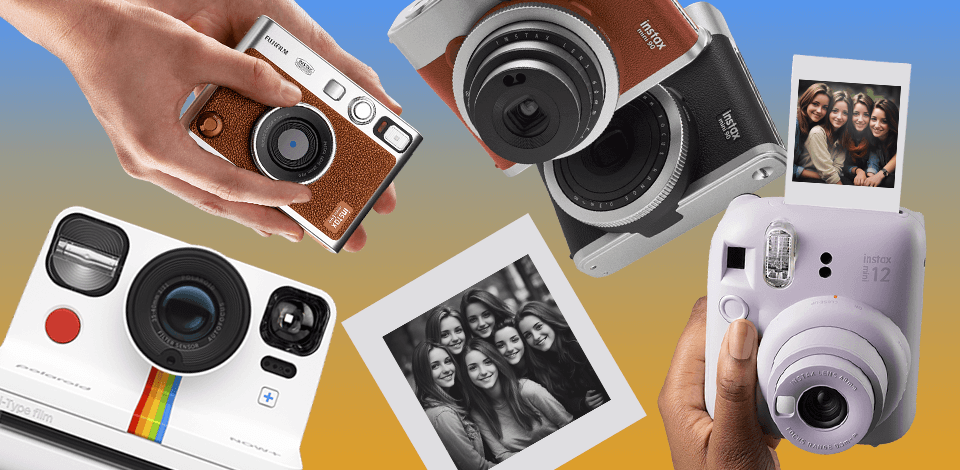
The first Polaroid camera was created in 1947, and since that time people have been heavily using instant-print cameras. These devices allow capturing any scene and printing it in an instant to enjoy hilarious pics.
Although images taken by an instant camera are not as ideal as those taken by modern DSLRs or mirrorless, the soft finish and imperfections make these photos so aesthetic.
To define the best instant film camera, I’ve tested many popular devices presented by such well-known brands as Fujifilm, Polaroid, Leica, Canon, and Kodak.
When testing the cameras, I paid attention to such parameters as print quality, intuitive operation, and affordability. I came to the conclusion that Fujifilm’s Instax Mini 12 is the most optimal solution for most people nowadays.
Print quality. High-quality prints are not about instant cameras. You’ll rarely see a sharp photo taken with such equipment and almost all models cannot perform well in low-lighting conditions. However, images should be at least clear, discernible, natural-looking, and have enough brightness.
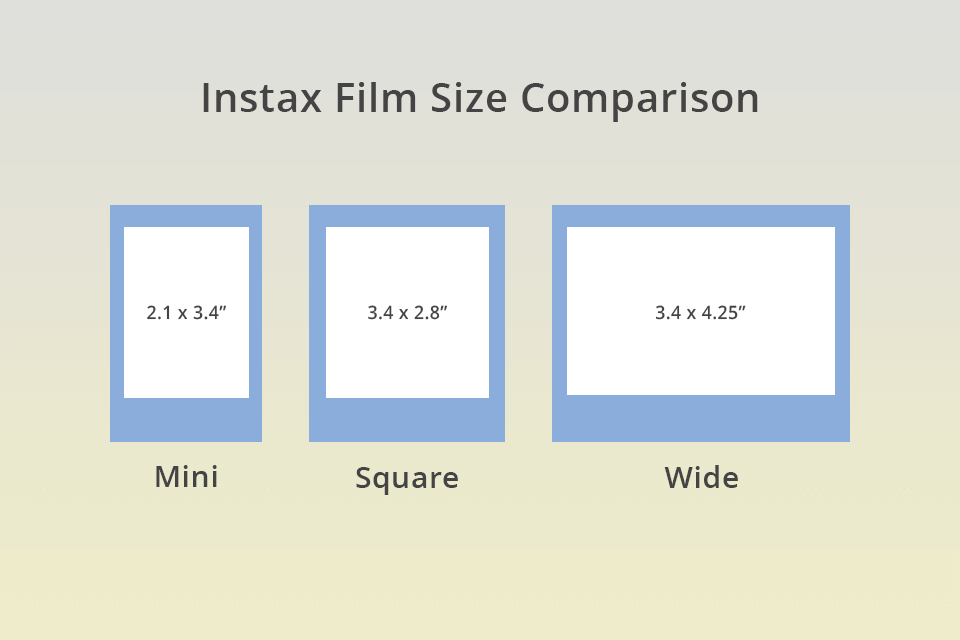
Film size and accessibility. You should define the size of prints that can satisfy all your needs. For instance, Instax film is available in three sizes: Mini, Square, and Wide. In the table below I listed different film sizes (full size including border) for popular film cameras.
|
Instax |
Mini — 2.1 x 3.4” |
Square — 3.4 x 2.8” |
Wide — 3.4 x 4.25” |
|
Polaroid |
I-Type — 4.2 x 3.5’’ |
Go — 2.12 x 2.62’’ |
600 — 3.5 x 4.2” |
Besides, it is important to consider the price and availability of the film. The price of a single shot varies from 50 cents and $2 a shot depending on the brand.
For example, when I was looking for a film for Instax Mini 12, I found multiple variants, the cost of which started from $0.67, whereas for Kodak Mini Shot 3 Retro, there are only several types of film on Amazon.
User-friendly. This is a very important aspect, as to enjoy smooth and fun operation, a photographer should be able to shoot without learning multiple instructions, especially when it comes to selecting a camera for kids. I think that the major benefit of an instant camera is the ability to pass it around at any social gathering.
Value. The cost of the camera generally depends on the variety of features and capabilities it offers. Some models, for example, have a companion app or are fitted with a selfie mirror, while others even allow to print photos from a phone. Although these features are not mandatory, their availability may be a real bonus for some photographers.
Long-lasting battery. When shooting with an instant camera, it is important to have several sets of spare batteries to be able to capture all the meaningful moments. Opt for a camera that allows shooting at least 100 images with a battery set. In my opinion, Instant Square SQ6 is the best instant photo camera in terms of battery longevity.
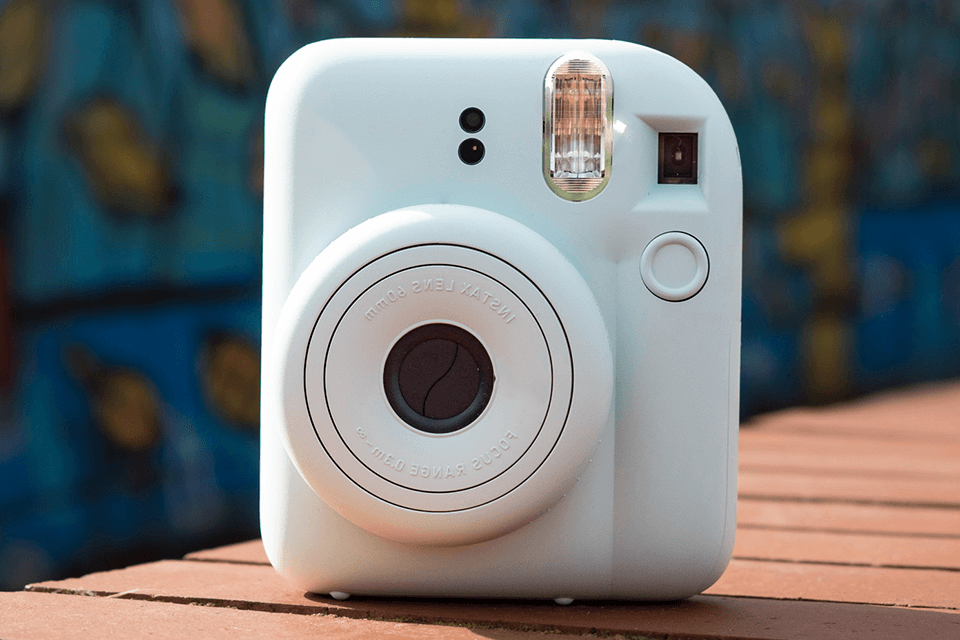
Film type: Fujifilm Instax Mini film, 2x3’’ | Battery: Around 100 shots | App: Yes | Notable features: Auto exposure, selfie feature
Fujifilm’s Instax Mini 12 is the greatest solution for those who want to get decent prints for a low price. To configure this cheap camera and take a pic in less than five minutes – all you need to do is twist the lens to either “on” or “off.”
When it comes to image quality, it is also better if compared to other cameras I shot with, as the pics are very close to life. Most of the tested cameras do not perform well in low-lighting scenarios, and this model is not an exception, but it has a built-in flash that improves the result.
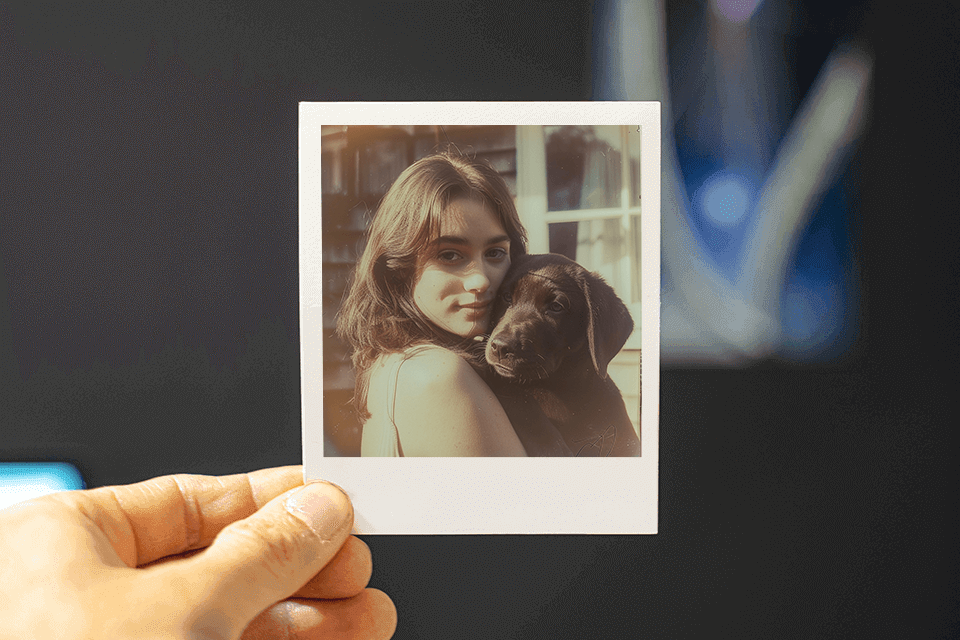
A handy selfie feature. This is actually a small mirror attached to the front of the camera, But I noticed that this option allows capturing features and skin color with more precision.
The ability to quickly align the photo with the Parallax Correction feature. Although to take quality pics you’ll need to take several test photos, the result will definitely satisfy you. I could zoom in on the landscape I liked and level it after several attempts (as well as some composition guidance from the manual).
The camera comes with a small counter. It shows the number of photos you can still take, which is a considerable advantage of such models over others available on the market today.
Overpowering flash. The flash cannot be turned off, so in some cases, the photos may be overexposed.
Recommended film: Fujifilm Instax Mini Instant Film Twin Pack, 20 photos.
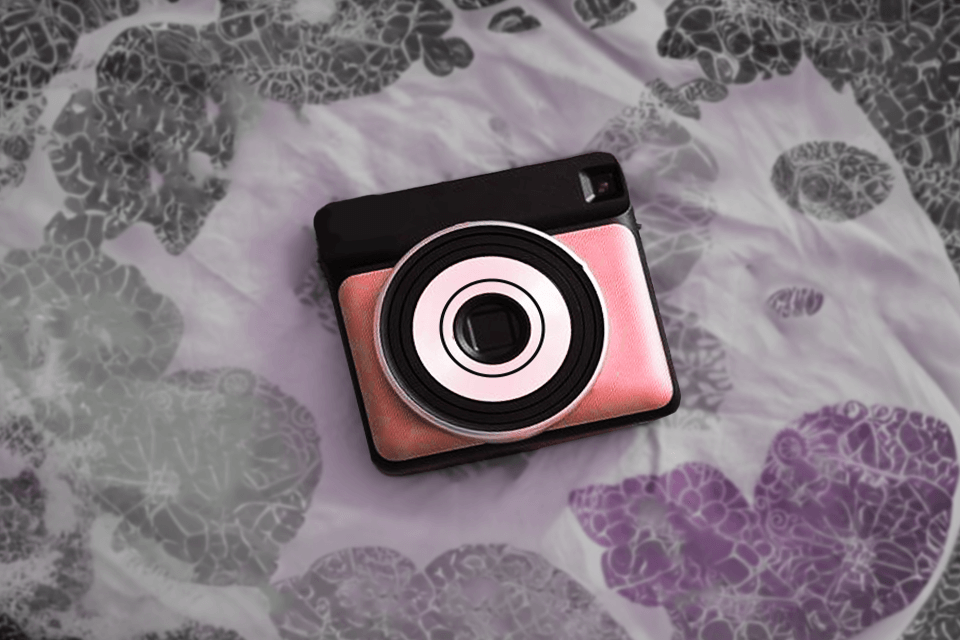
Film type: Fujifilm Instax Square film, 3.4 x 2.8” | Battery: Around 300 shots | App: No | Notable features: 5 shooting modes, auto exposure
Instax Square SQ6 is designed to recapture the feeling of a true square Polaroid image. This camera attracted my attention with its exquisite design and amazing battery life. The manufacturers promise that this model will last for 30 film packs of 10 films – that’s 300 pics.
The printed images are crisp, clear and feature bright colors (unless processed with filters). Apply the filters to produce vivid and creative results.
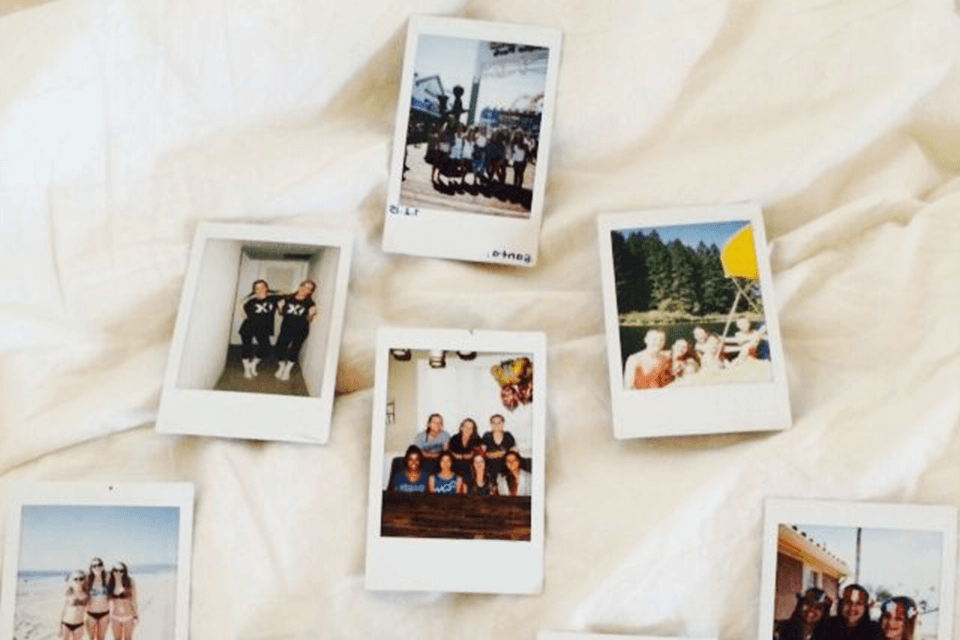
Various shooting modes. The variety of modes on this camera for photography adjusts the focal length of the lens. Macro mode is appropriate for shooting subjects 0.3-0.5m away, whereas normal mode is used to photograph subjects 0.5m-2m away and landscape mode is the best option for taking pics of subjects 2m and beyond.
Sturdy body. The material used to manufacture is sturdy plastic, so it is quite durable. This model is a perfect option for travelers, as it can withstand bumps and accidental drops.
Built-in Double Exposure mode. This feature is a highlight of this model. The ability to layer two exposures on top of one another allows the implementation of different creative ideas.
To my mind, it is better to select a distinct subject with a bright background for your first frame (like shooting a silhouette), and then move to a more generic, patterned, or textured photo.
Expensive film. Besides, it is even more difficult to find it than the Fujifilm Instax Mini 12, for example.
Inconvenient location of viewfinder. While it is quite ergonomic and feels great in hands, and the shutter button is placed right, the position of the viewfinder on the right side is questionable and confuse shooters (as most of them are right eye dominant). It means that a photographer should literally squish their face into the back of the camera to discern the scene in the viewfinder. This makes the shooting process awkward and uncomfortable.
Recommended film: Fujifilm Instax Square Twin Pack Film, 20 exposures
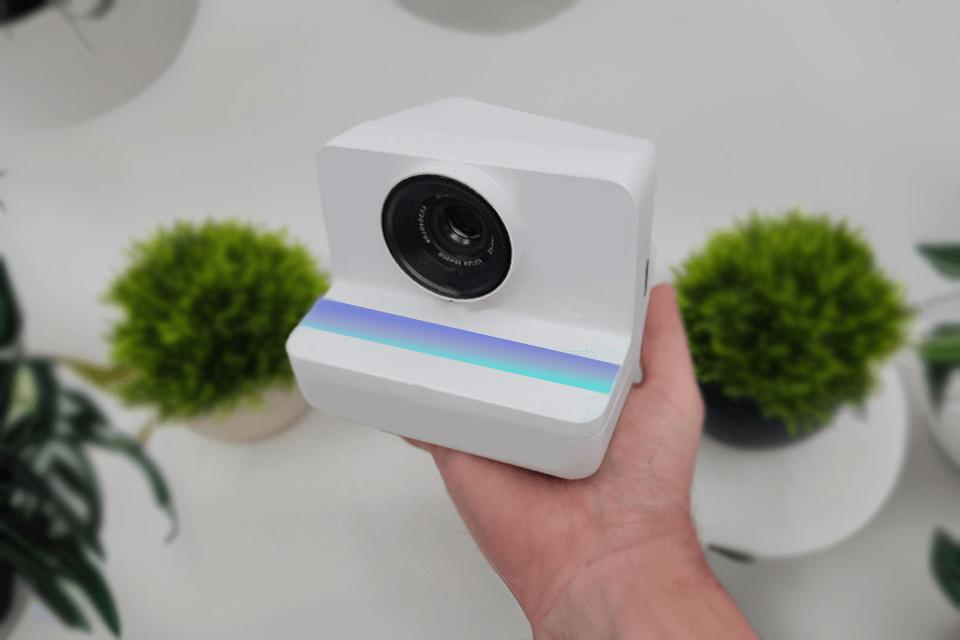
Film type: Polaroid I-Type color film, 4.2 x 3.5’’ | Battery: Around 160 shots | App: Yes | Notable features: Bluetooth, double exposure, light painting, noise trigger
This is the best instant print camera for those who want to get the most old-fashioned, instant-film experience. The second-gen Polaroid Now Plus offers I-Type film prints and iconic Polaroid-style frames to give photos an authentic vintage feel.
Moreover, this vintage camera is quite easy to configure. I also like that this model supports Bluetooth and comes with a companion application offering several creative modes for complete control over a photographic session.
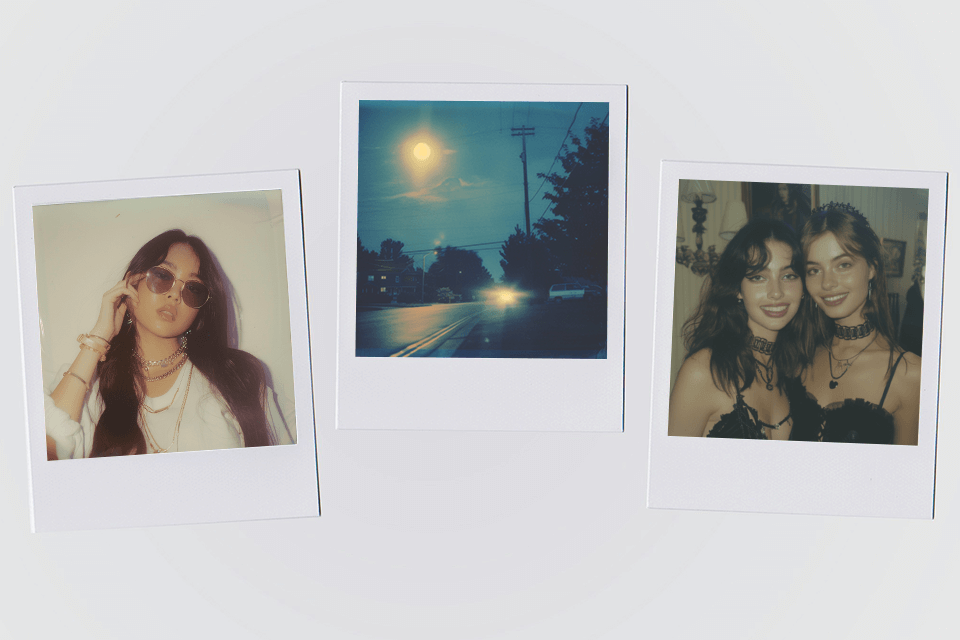
Full-featured camera. Except for Bluetooth and the app, this camera also has a USB-C powered rechargeable battery, auto-focus dual lens system, and in-built flash. You can also easily mount it on a tripod and experiment with the lens filter kit that comes with the camera.
Convenient app. A remote shutter, a self-timer, and a “Polaroid Lab”, which allows adjusting the exposure and different color settings for a pic, are the greatest features of the app. There are also various shooting modes like a manual one and the one for shooting multiple exposures, whereas the camera itself comes with five colored lenses to attach to the front.
Awkwardly sized. This camera is not ergonomic, so photographers will struggle to take it with because of its bulky design and big size. Not only that, the print development process takes up to 15 minutes, and it is crucial to make sure that not a single light beam hits the print during it, which is especially inconvenient when conducting a photoshoot at the beach.
Bad photo quality when shot in low light. Images taken indoors were awful, and I only could shoot decent pics when the light was right behind me during the day, which was only possible in the morning. Even such photos were not so clear as the ones taken with to Instax film. As for contrast and color, they are quite low.
Recommended film: Polaroid Instant Color I-Type Film, 40 photos
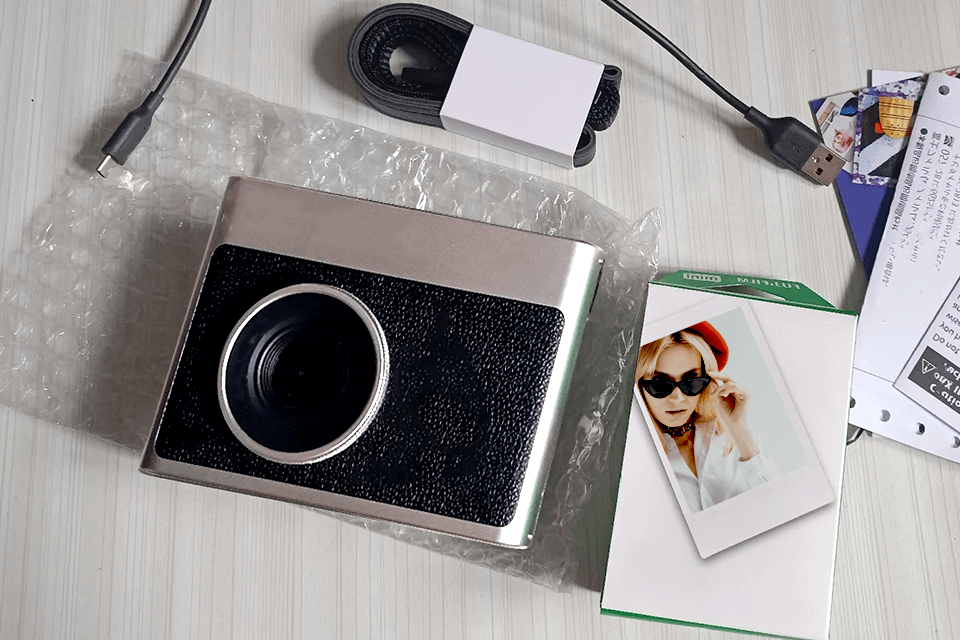
Film type: Fujifilm Instax Mini film, 2 x 3’’ | Battery: Around 100 shots | App: Yes | Notable features: Built-in selfie mirror, lens, and film effects
Fujifilm Instax Mini Evo does not only offer all the goodies of an instant camera but also lets you decide which pics to print onto Instax Mini film using a small LCD screen, which is a rare feature for such devices.
The Mini Evo produces more high-quality photos if compared to other Instax cameras. When comparing the resulting pics, those produced by Mini Evo are much clearer than those from Fujifilm Instax Mini 90.
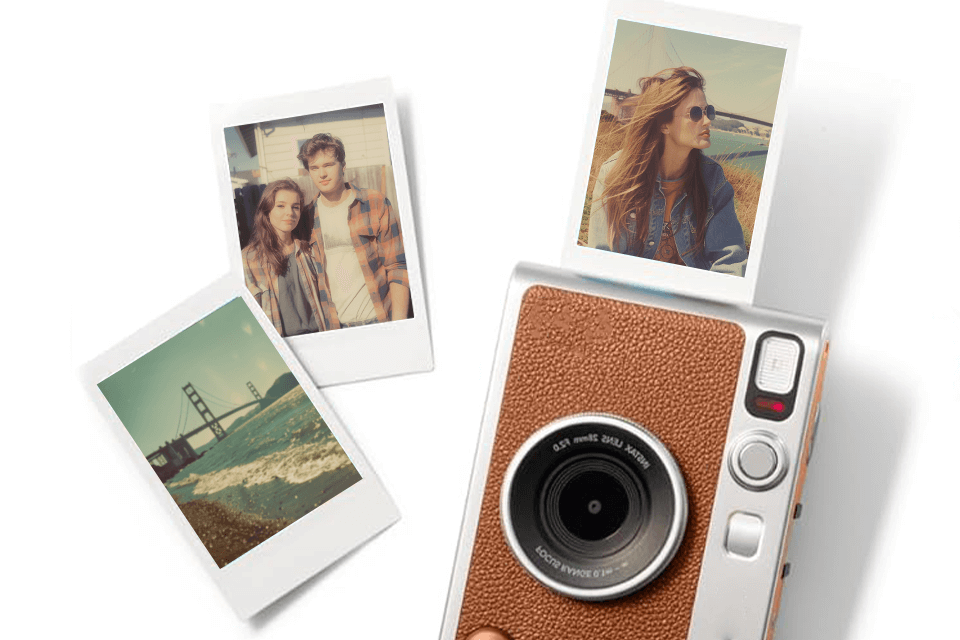
Complete control over my images. Shooting with this Fujifilm camera, I can turn off the flash and use a 3-inch LCD screen as a viewfinder. In the menu, I can adjust such parameters as the brightness of the developed prints. A smartphone is great for tech-savvy users who are looking for such sophisticated functions as remote shooting and the ability to print images from a smartphone library.
Moreover, a photographer can apply different lens options and filters with camera deals. You can tinker with retro and monochrome shades, mirror lenses, vignettes, soft focus, and more.
USB-C port for charging. This advantage lets this model stand out among other cameras. Thanks to it, I do not have to buy tons of batteries all the time.
The menu is difficult to navigate. Inexperienced users will struggle to figure out how to activate and deactivate the flash.
Limited storage. The inner storage capacity allows for saving up to 45 images before the memory is full.
A bad option for landscape photos. The camera design is a bit bulky, so Mini Evo is easier to shoot within portrait orientation, as in landscape mode, a photographer needs to press the shutter button, which is a bit awkward for many people.
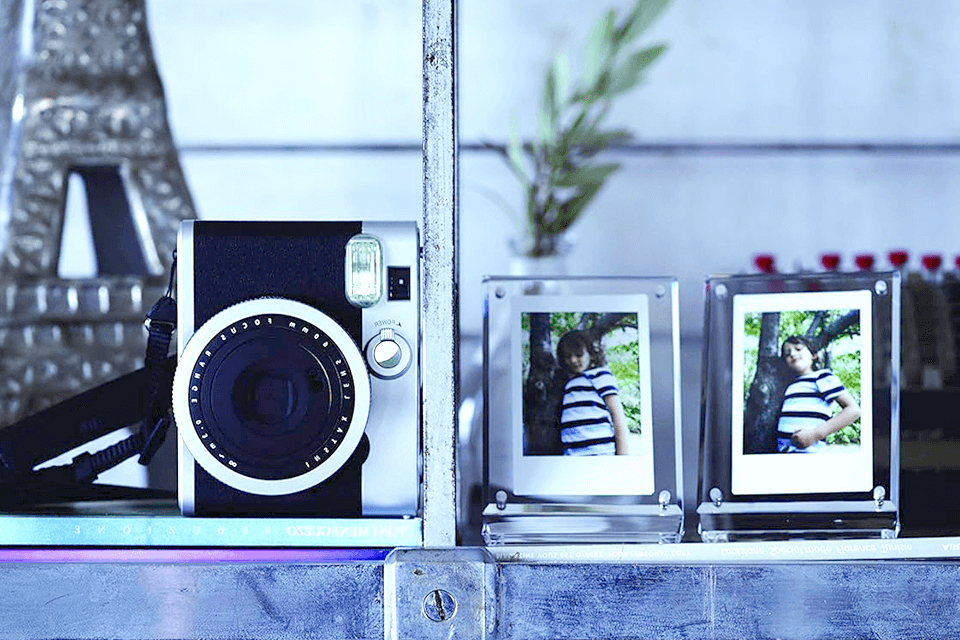
Film type: Fujifilm Instax Mini film, 2 x 3’’ | Battery: Around 100 shots | App: No | Notable features: Bulb and double exposures, macro mode, high performance flash
Mini Evo and Mini 90 have the same price, but the first model is more capable, since the second one of fully analog. It means that the Mino 90 delivers decent image quality for a Mini device. So, if you are looking for a fully analog experience and retro-style photos, this is the best instant picture camera to buy.
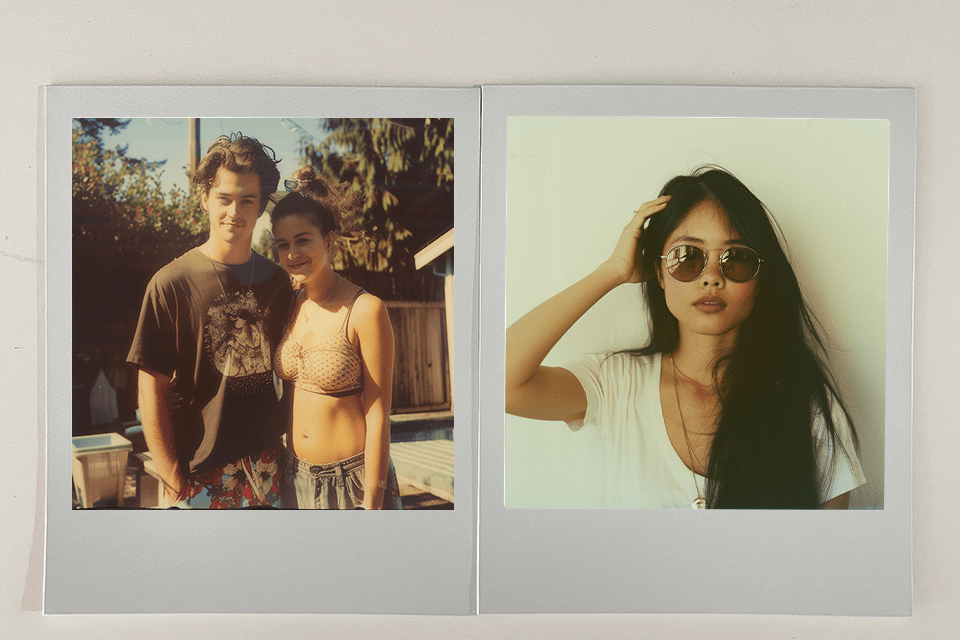
Ergonomic and user-friendly. I appreciate the convenience of having two shutter release buttons for shooting portraits and landscape pics. Another considerable plus of this model is the onboard ability to take close-ups without the need to install an extra lens. The only thing you need to do is to hit the button with the icon of a flower.
Offers various modes. The handiest from them is double exposure mode, which is really great to tinker with. It has also a setting to adjust different types of photos. Although the camera can tweak some parameters automatically when shooting scenes at a distance, it is possible to achieve the best shots when capturing objects within 10 feet of the camera.
Rechargeable battery. Paying a bit more than for the Fujifilm Instax Mini 8 is definitely worth the benefit of having the rechargeable battery
Not very compact. Honestly, I expected the camera to be a little bit smaller, so I could easily fit it into a small bag or clutch. But, its design is much more ergonomic in comparison to the Instax Mini 8.
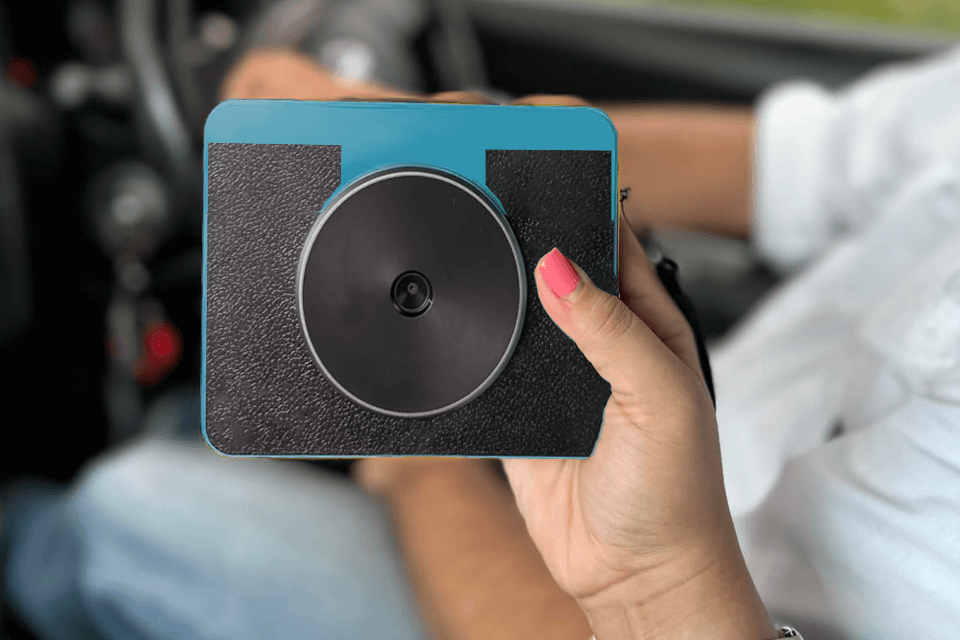
Film type: Kodak Instant Print cartridge, 3 x 3’’ | Battery: - | App: Yes | Notable features: LCD screen, smartphone printing
Similar to Instax Mini Evo, Kodak’s Mini Shot 3 Retro is fitted with an LCD screen that lets you decide whether the photo should be printed or not. The Bluetooth support is another great plus. Besides, with the Kodak Photo Printer app, photographers can publish photos on social media platforms and print relatively sharp photos right from the phone.
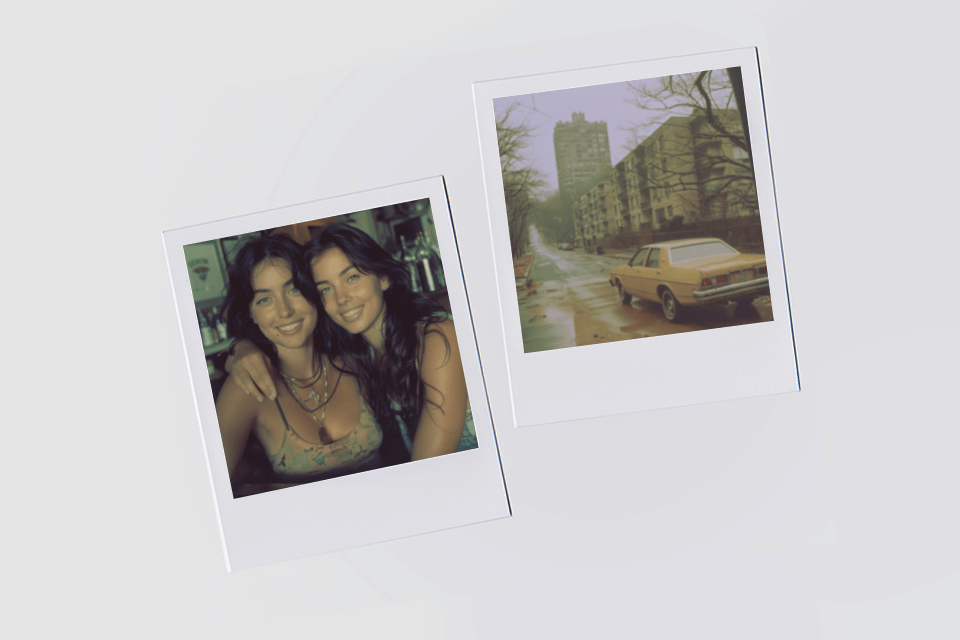
Amazing app functionality. I could easily enhance my film photos with frames, stickers, and filters and create an impressive scrapbook for my friend. The app even has a beauty feature to erase blemishes and offers a collection of Snapchat-like filters to add such cute elements as dog ears to turn any photoshoot into a fun and exciting activity.
Affordable film. A 60-sheet cartridge costs about about $17.99, so the price of one shot is roughly $0.33. Such a cheap film induces photographers to experiment and implement various creative ideas.
The preview screen has a very small size. Also, its resolution is not very high, so you cannot say for sure what quality your pics will have as minor blurriness or poor focus will be hard to detect.
Mediocre photo quality. The quality of the pics taken by a camera cannot compete with images shot with a smartphone. The photos lack clarity and are not very sharp, and, if compared to the Mini Evo or Mini 12, their quality is worse. Besides, some images have too much pink, which is another minus.
Sluggish printing process. Although the process lasts less than a minute, compared with other models, this is quite a long time.
Recommended film: KODAK 4PASS 7.5 x 7.5 cm Film Cartridge (60 Sheets)
Fujifilm Instax Square SQ40 is probably the best instant polaroid camera for capturing spontaneous moments, as its design and controls are minimalistic. There are only three parameters: on, off, and close-up (for selfies).
The camera has an in-built flash, so you can produce decent shots even in poorly lit environments. But it also causes a black background when shooting selfies. I was also disappointed to find out that the camera is available in black color, so if you like more colorful devices, consider other models listed in this review.
Fujifilm Instax Wide 300 appeals to users who usually shoot wide and landscape-oriented images. The Wide 300 has a special button for adjusting exposure and flash output levels, meaning that you get more control over the shooting process, which is a considerable advantage over other models. Its body is heavier and bulkier.
Instax Square SQ1 offers many advantages like good-quality pics, intuitive setup, and use, as well as a built-in selfie mirror. However, it costs twice as much as the Mini 12, which is its main competitor. The price is $115. However, photographers who prefer 2.4 x 2.4-inch square prints and realistic photos find this model to be an optimal solution.
❌ Kodak Printomatic. The low cost of this camera, which is $49.99 with a pack of film, makes this instant camera a bestselling program on Amazon. However, photographers often complain about poor photo quality and oversaturation. Actually, it was difficult to recognize the subject in the frame for me. The slow printing process is another downside of this model and the shutter button does not always respond to the press.
❌ Lomography Lomo'Instant Automat. This camera boasts an eye-grabbing design and it is compatible with Instax Mini film packs, which are quite affordable. Multiple exposures are one of the highlights of the camera, but the controls are marked with hieroglyphic symbols, which are difficult to decipher. Designed for experienced photographers and shooting film, most of the models from this series come equipped with fish-eye, wide-angle, and close-up lenses, which are not convenient in use.
❌ Instax Mini 11. This model is a bit cheaper than the newer Mini 12, but its functionality is very restricted if compared to the competitor. Paying more than $50 for Mini11 is unreasonable, so consider purchasing it only if its price tag is lower.
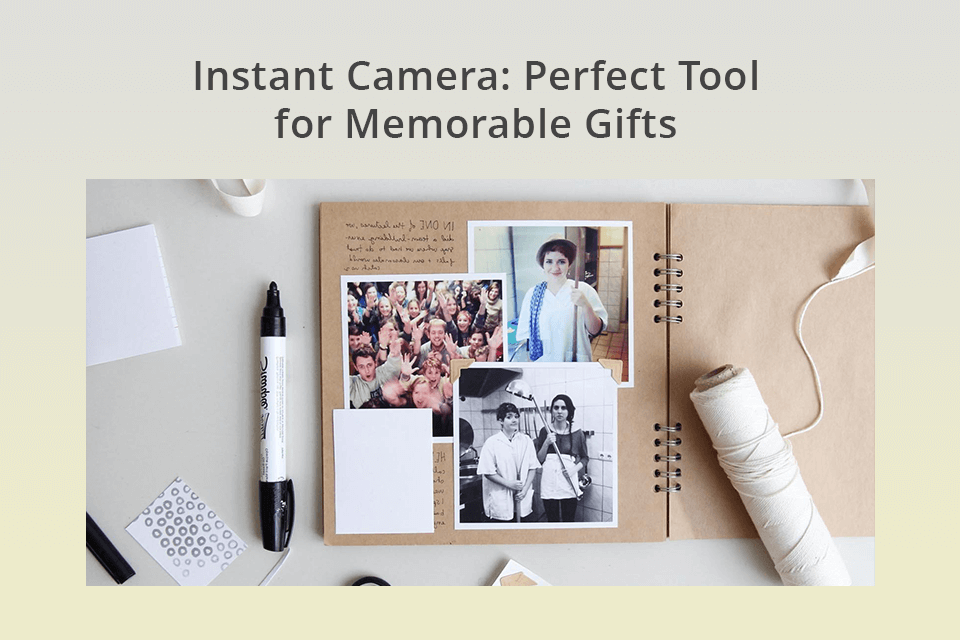
Should you acquire an instant camera or use a smartphone camera for taking pics? Both devices have their pluses and minuses and are appropriate for specific cases. Instant cameras allow shooting pics with a vintage and nostalgic feel, whereas smartphones have more convenient and sophisticated features.
| Features | Instant Camera | Smartphone |
|---|---|---|
|
Physical Prints |
Instant physical prints to hold and share |
Digital images |
|
Image Quality |
Usually lower resolution, but unique aesthetic |
Higher resolution |
|
Connectivity |
Some models support Bluetooth connectivity |
Wi-Fi, Bluetooth |
|
Storage |
Lacks digital storage |
Large digital storage, cloud backup options |
|
Editing |
Limited |
Extensive |
|
Sharing |
Physical sharing, some have digital sharing options |
Instant digital sharing |
|
Creative Control |
Limited |
Full creative control |
|
Retro Appeal |
High, nostalgic factor |
Depends on the app or filter used |
Unique aesthetics and vintage feel are the main reasons why I decided to purchase this camera. I already had several Polaroid picture ideas and I wanted to make a scrapbook from Polaroid photos to congratulate my friend on her birthday. Indeed, for such purposes, an instant camera is better than a smartphone.